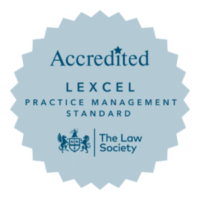Conveyancing: What are Covenants – and Why Should You Care?
17th Sep 2025
When you’re buying a property, you’re not just buying bricks and mortar—you’re also taking on any legal promises attached to the land. These are known as covenants, and they can have an impact on what you can or can’t do with your new home.
They can be both positive and restrictive.
So, What Is a Covenant?
A covenant is a legal promise that’s recorded in the title deeds of a property. Covenants can be both positive and restrictive.
These obligations can affect everything from whether you’re allowed to build an extension to whether you can run a business from home—so it’s important to understand them.
Positive vs Restrictive Covenants: What’s the Difference?
There are two types of covenants you’re likely to come across:
- Positive Covenants
These require the landowner to do something—like maintaining a boundary wall or contributing to the cost of a shared access road. - Restrictive Covenants
These are more common. A restrictive covenant prevents the land from being used in certain ways. For example, you might not be allowed to:
• Run a business from home.
• Keep certain animals, like chickens or pigs.
• Build an extension or new structure without someone else’s consent.
Restrictive covenants ‘run with the land’—meaning they apply no matter who owns the property, as long as legal requirements are met.
Why Do Covenants Matter?
Because they can directly affect what you’re allowed to do with your property—and ignoring them can lead to serious legal ramifications. Some covenants are straightforward, but others can be buried in old legal documents or worded in an unclear, confusing way.
For example, a covenant might say “no alterations without consent” – which could stop you from doing that loft conversion you had your heart set on.
What Makes a Restrictive Covenant Enforceable?
For a restrictive covenant to be legally enforceable against a future owner, the buyer must have been given proper notice of it.
Here’s what that usually involves:
- The covenant must be clearly registered with HM Land Registry as part of the property’s title.
- If the property is unregistered, it must be recorded as a Land Charge.
- The covenant must be clear and specific—not vague, overly broad, or uncertain.
- It must not break the law, including competition laws or public policy rules.
Final Thoughts
Covenants can be confusing, and they’re often overlooked until they become a problem. If you’re buying a property—or planning changes to one you already own—it’s always a good idea to seek legal advice.
Related news
Articles you may find useful
Like this article? Sign up for our regular newsletters






